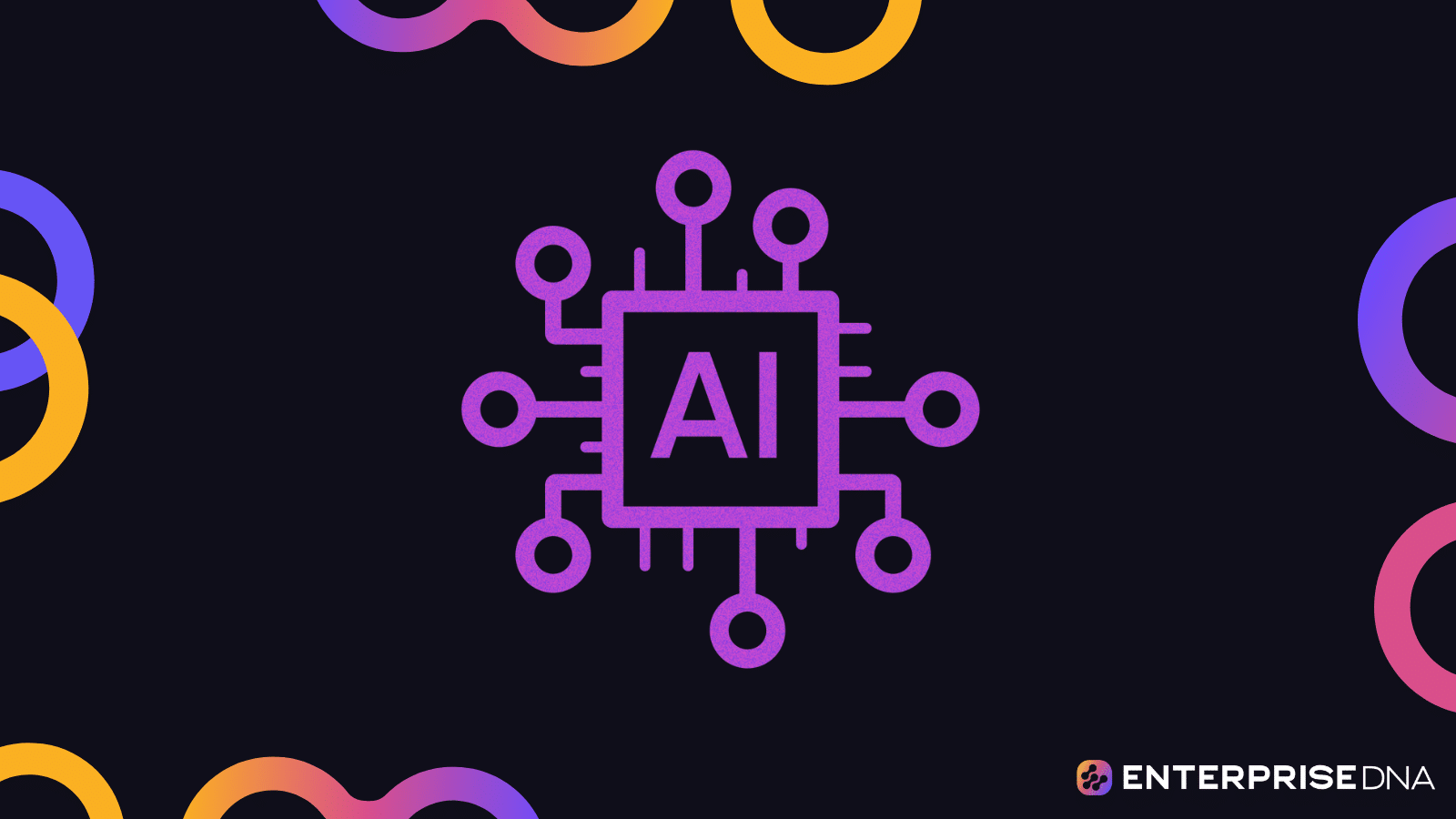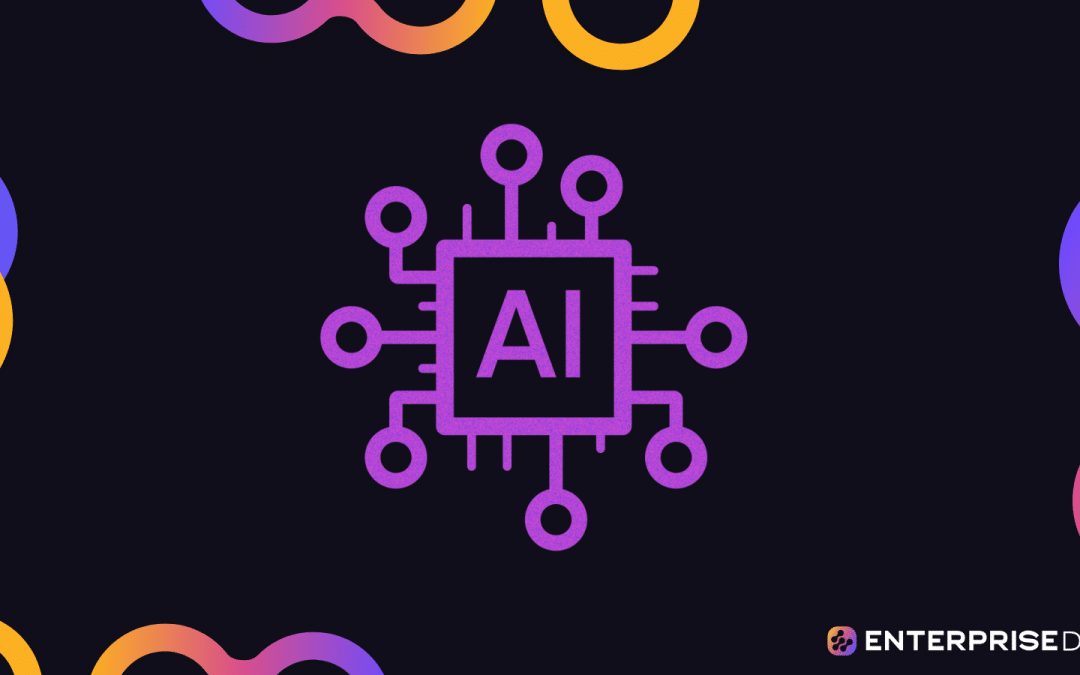If you’re planning to pursue a career in the tech industry, it’s crucial to comprehend the different roles and how they differ.
Machine Learning Engineers focus on AI and predictive models using algorithms and data. Software Engineers develop and maintain a wide range of software applications. The former specializes in AI applications, while the latter covers general software development.
In this article, we’ll explore the key differences between machine learning engineers and software engineers.
Understanding these distinctions can help you make an informed decision about which career path to pursue.
Let’s explore these excellent career opportunities.
Overview of Machine Learning Vs. Software Engineering
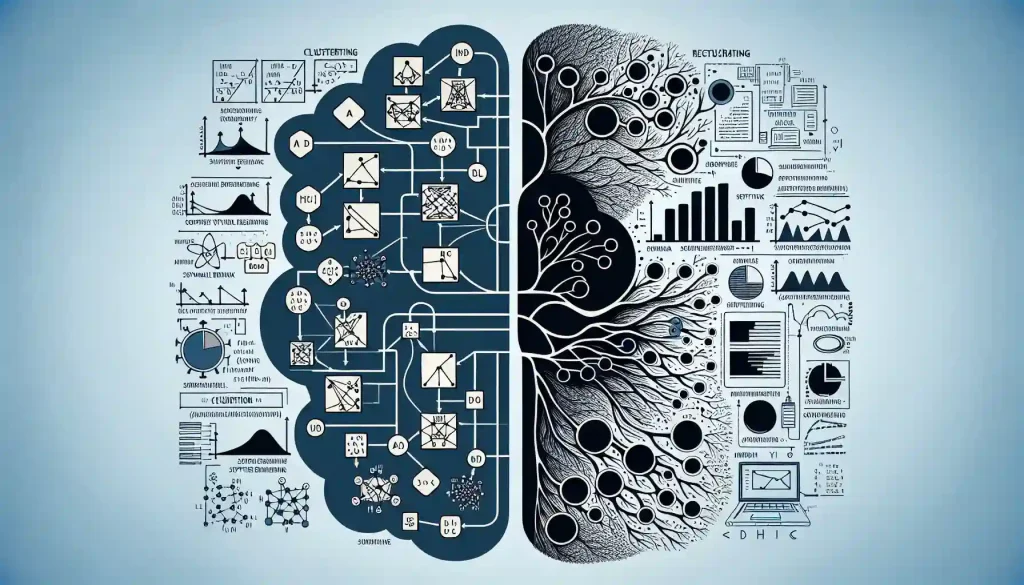
At first glance, software engineering and machine learning might appear closely related, as both involve working with code and building systems.
However, upon closer inspection, these two positions have some fundamental differences.
A software engineer specializes in developing software applications and systems across various platforms and programming languages.
They are skilled in designing, implementing, and maintaining software solutions that meet specific requirements and user needs.
On the other hand, a machine learning engineer focuses on creating algorithms and statistical models that enable computer systems to make predictions or decisions without explicit programming.
They work with large datasets, performing data analysis and training machine learning models to identify patterns and make accurate predictions.
Next, let’s examine the key distinctions to illustrate further the differences between these two career paths.
Key Differences Between ML and Software Engineering
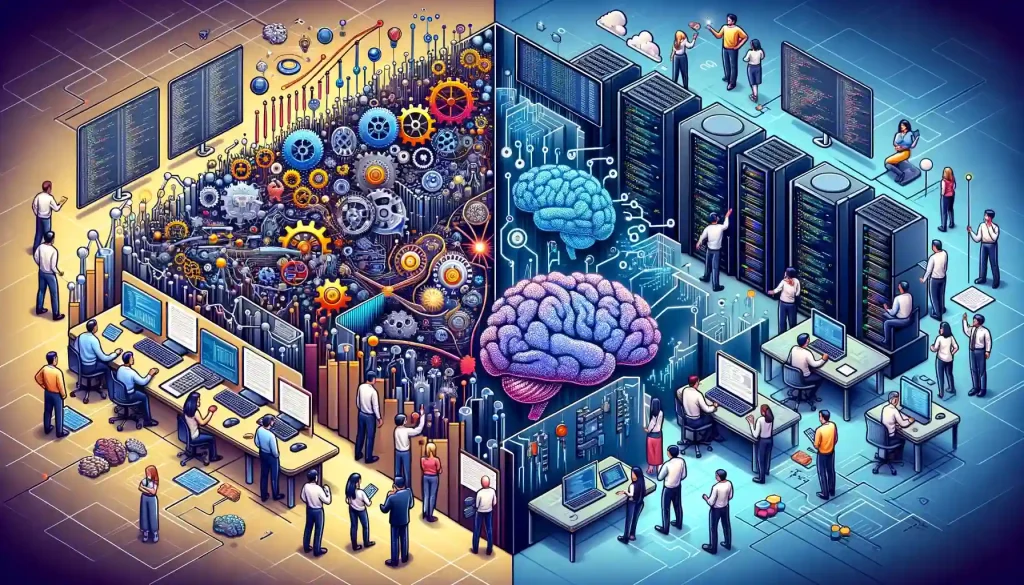
The critical difference between machine learning and software developers lies in their focus.
Let’s drill down on some very important differences.
Knowledge Base
ML engineers must have a strong mathematics, statistics, and computer science foundation. They extensively use data analysis, linear algebra, calculus, and probability theory.
In contrast, software engineers require proficiency in programming languages, software development methodologies, and tools such as version control systems and integrated development environments.
Skills
Machine learning engineers must possess skills in data analysis, machine learning, deep learning libraries (e.g., TensorFlow, PyTorch), and frameworks like sci-kit-learn.
They should have experience working with big data technologies like Hadoop Spark and specialized hardware like GPUs for training models efficiently.
Software engineers need programming skills in Java, C++, Python, and JavaScript.
Additionally, they must be adept at utilizing software development tools (e.g., IDEs, debuggers), frameworks (e.g., React, Angular), version control systems (e.g., Git), and software testing practices (e.g., unit testing).
Responsibilities
A machine learning engineer’s responsibilities include cleaning and preprocessing data, feature engineering, model selection, training and evaluating models using appropriate metrics.
They also focus on deploying models into production environments and monitoring their performance over time.
On the other hand, software developers are responsible for the entire development lifecycle.
This involves requirement analysis, system design, coding, testing, debugging, maintenance, documentation, and continuous improvement of software products or systems.
Let’s delve into the educational requirements for these two fulfilling jobs!
Machine Learning Engineer Vs Software Engineer Educational Background

The educational background for a software engineer typically includes a bachelor’s degree in computer science, software engineering, or a related field.
However, a master’s degree or PhD may also benefit career advancement opportunities.
Additionally, obtaining professional certifications and continuous learning through online courses, workshops, or industry events can help software engineers stay relevant.
However, prospective machine learning engineers often possess a bachelor’s degree in computer science, mathematics, statistics, or a related field.
Now, let’s examine the expected salaries.
ML Engineer Vs Software Engineer Salary
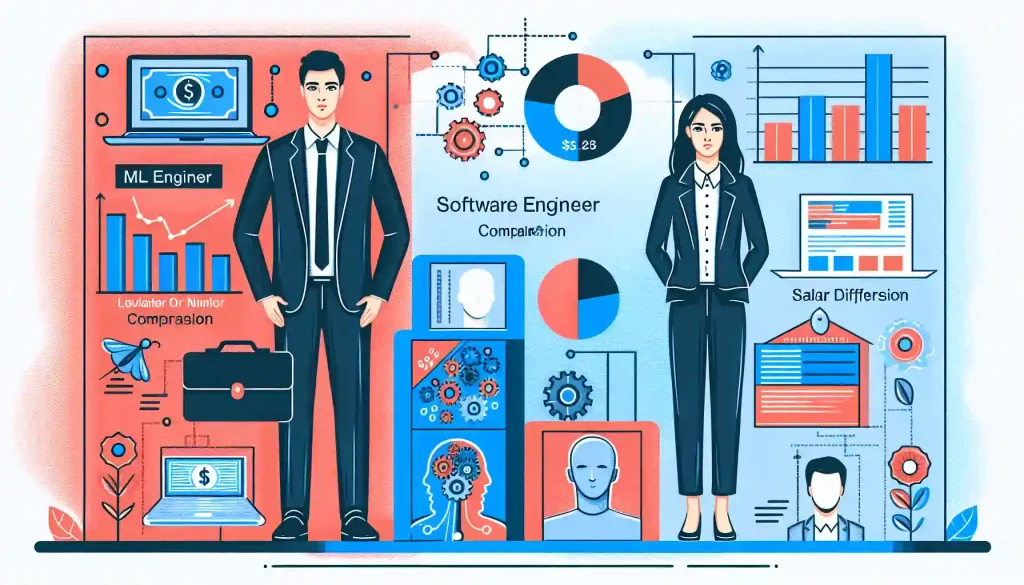
Let’s look at the remuneration for these two positions. It can significantly influence your choice of career path.
In the United States, entry-level software engineers generally earn between $70,000 to $155,000 annually, while machine learning engineers earn an average base salary of around $100,000 to $250,000 annually.
Higher salaries for machine learning engineers can be attributed to the specialized nature of their work and the increased demand for professionals with expertise in artificial intelligence .
Now that you’ve got an idea of the differences between these two roles in tech, let’s compare where they fit in the job market and examine the current trends and career potential.
Job Market and Career Potential
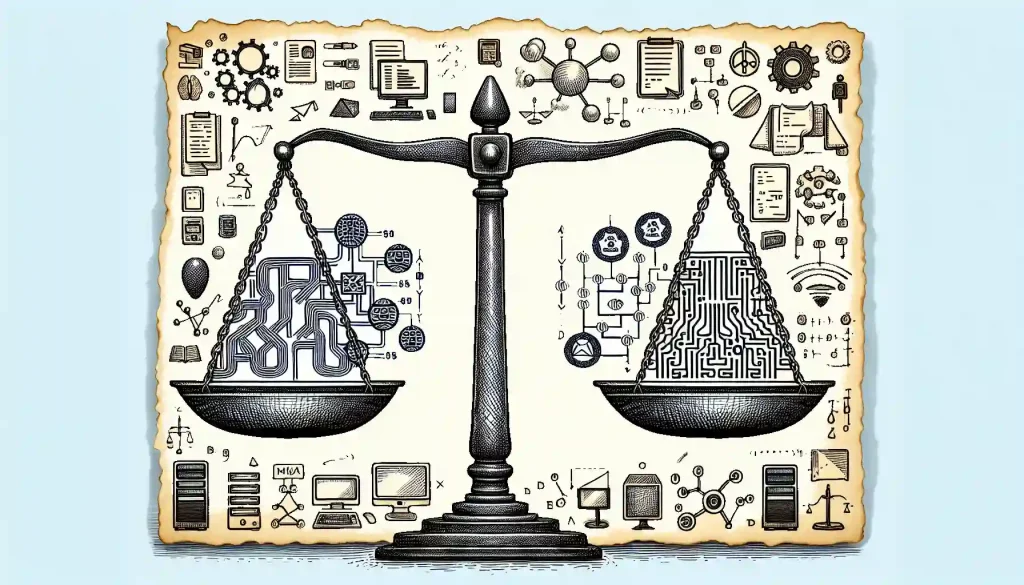
When considering the job market for a Machine Learning Engineer versus a Software Engineer, looking at trends, demand, and salary potential is essential.
Both careers offer growth opportunities and a strong market presence.
One key difference is in specialization.
Machine Learning Engineers focus more on developing algorithms that allow machines to learn from data and make decisions.
Software Engineers have a broader range of responsibilities encompassing software application design and development.
Machine Learning Engineer Job Market
In recent years, there has been a significant increase in demand for ML Engineers as companies seek to harness the power of artificial intelligence to gain a competitive advantage.
The job market is particularly robust in the healthcare, finance, e-commerce, and technology industries.
Salaries are typically higher than those for Software Engineers due to the specialized nature of their work.
Software Engineer Job Market
The job market for Software Engineers is also thriving, with ample opportunities in various industries, including technology, healthcare, finance, and e-commerce.
Salaries for Software Engineers are competitive, with strong growth potential as companies continue to invest in digital transformation.
Software Engineering offers various career paths, including front-end development, back-end development, full-stack development, mobile application development, cloud computing, and more.
Next up, let’s compare how different industries leverage these skills.
Industries Leveraging Machine Learning Engineers

The healthcare industry increasingly uses AI-driven applications for medical imaging analysis, personalized treatment plans, and early disease detection. Machine learning is at the forefront of developing these innovative solutions.
The finance sector relies on machine learning models for fraud detection, risk assessment, algorithmic trading, and customer service chatbots. As a result, there is a growing need for machine learning in this industry.
Furthermore, E-commerce companies utilize machine learning algorithms for product recommendations, dynamic pricing strategies, and customer behavior analysis.
Machine Learning Engineers are crucial in enhancing user experience and driving sales growth in this sector. The technology industry is a natural fit for ML Engineers as it continues to innovate and develop AI-powered products and services.
There is a wide range of opportunities for professionals in this field, from virtual assistants to autonomous vehicles.
Moving on, let’s explore software engineering in various industries.
Industries Leveraging Software Engineers

Software Engineers are essential for developing and maintaining applications across various industries.
The finance industry requires customized software solutions for trading platforms, banking applications, portfolio management tools, and more, and software developers play a crucial role in meeting its industry-specific needs.
E-commerce companies heavily rely on software solutions for online shopping platforms, inventory management systems, customer relationship management (CRM) tools, and supply chain optimization.
Software developers drive innovation by developing cutting-edge solutions such as augmented reality applications, gaming software, cloud computing platforms, and enterprise resource planning (ERP) systems.
The demand for both Machine Learning and Software Engineers will remain strong across multiple industries in the coming years.
Finally, let’s reflect on our final thoughts.
Final Thoughts

In summary, your career choice between Machine Learning Engineer and Software Engineer depends on your interests and strengths.
Machine Learning Engineers specialize in data analysis and predictive algorithms, offering lucrative opportunities, whereas Software Engineers build diverse applications, work with multiple languages, and enjoy versatility.
Both careers are in high demand and offer significant opportunities for growth and innovation.
Whether you’re intrigued by the specialized, data-centric world of machine learning or the diverse software development challenges, each path provides a rewarding and impactful journey in the tech landscape.
Good luck in your journey and in deciding which path to take!
Do you want to learn more about Data analysis and AI tools? Check out the EnterpriseDNA YouTube channel:
Frequently Asked Questions
What is the primary difference between a Data Scientist and a Software Developer?
Data Scientists primarily focus on data analysis, creating machine learning models, and drawing insights from data. In contrast, Software Developers are involved in the Software Development Life Cycle (SDLC), designing and building software solutions.
How does the role of a Machine Learning Engineer differ from traditional Software Engineering?
ML specializes in developing machine learning solutions, requiring a deep understanding of algorithms and data science. Traditional Software Engineers focus more on software developers, writing code for various plications.
What are the various skills of a Data Scientist?
Data Scientists need proficiency in data science, natural language processing, machine learning algorithms, and the ability to respond appropriately to the desired outcome of data analysis.
What is the average salary difference between a Machine Learning Engineer and a Software Engineer?
Average salaries can vary based on location, experience, and company size. Generally, ML Engineers may earn more money due to their specialized skills in handling complex data and algorithms.
How important is gaining experience in large companies for a career in Machine Learning or software?
Experience in large companies is valuable for both career paths, offering opportunities to work on diverse projects and gaining experience in keeping track of large-scale solutions.
What are the distinct differences in tasks between a Machine Learning Engineer and a Software Engineer?
ML Engineers often work on developing and fine-tuning algorithms, while Software Developers write code for software applications and ensure they align with the software development life cycle.
Can someone transition from Software Engineering to Data Science?
Yes, with the proper training and experience. It requires gaining knowledge depending on the specific role, its science, machine learning, and possibly natural language processing, depending on the particular role.
What is considered the primary responsibility of a Data Scientist?
The primary responsibility is to analyze data and extract meaningful insights, often using machine learning algorithms to predict trends or behaviors.
In what way do writing rules for machine learning algorithms differ from traditional software development?
Writing rules for machine learning involves creating algorithms that learn from data, whereas traditional software development involves writing fixed rules and logic to perform a specific task.
Why might a Machine-learning solution be preferred over traditional solutions?
Machine Learning solutions are ideal for tasks that require a deeper understanding of complex patterns in data, which can’t be easily solved with traditional rule-based programming. They are instrumental in areas like predictive analysis and automated decision-making.

